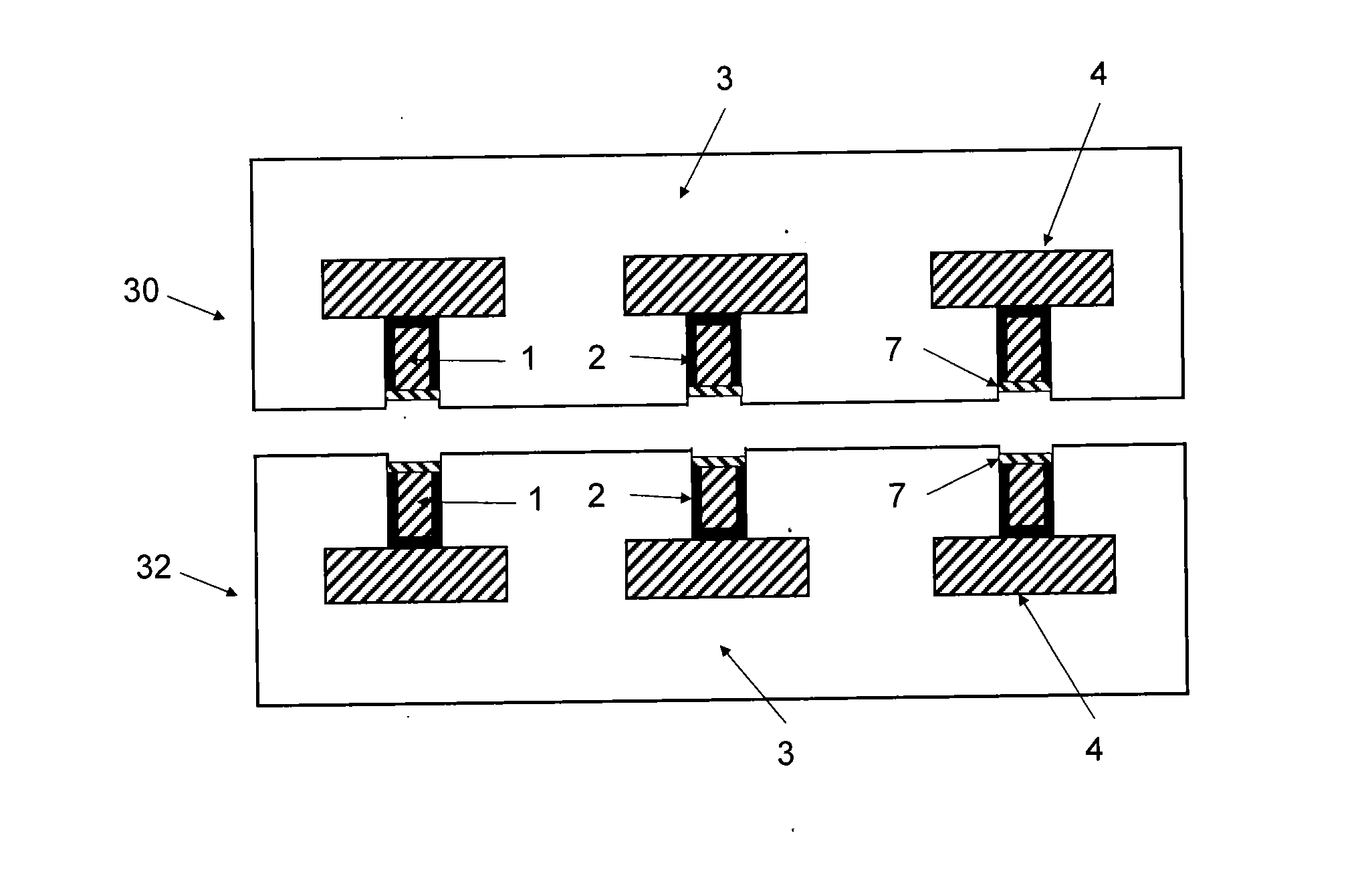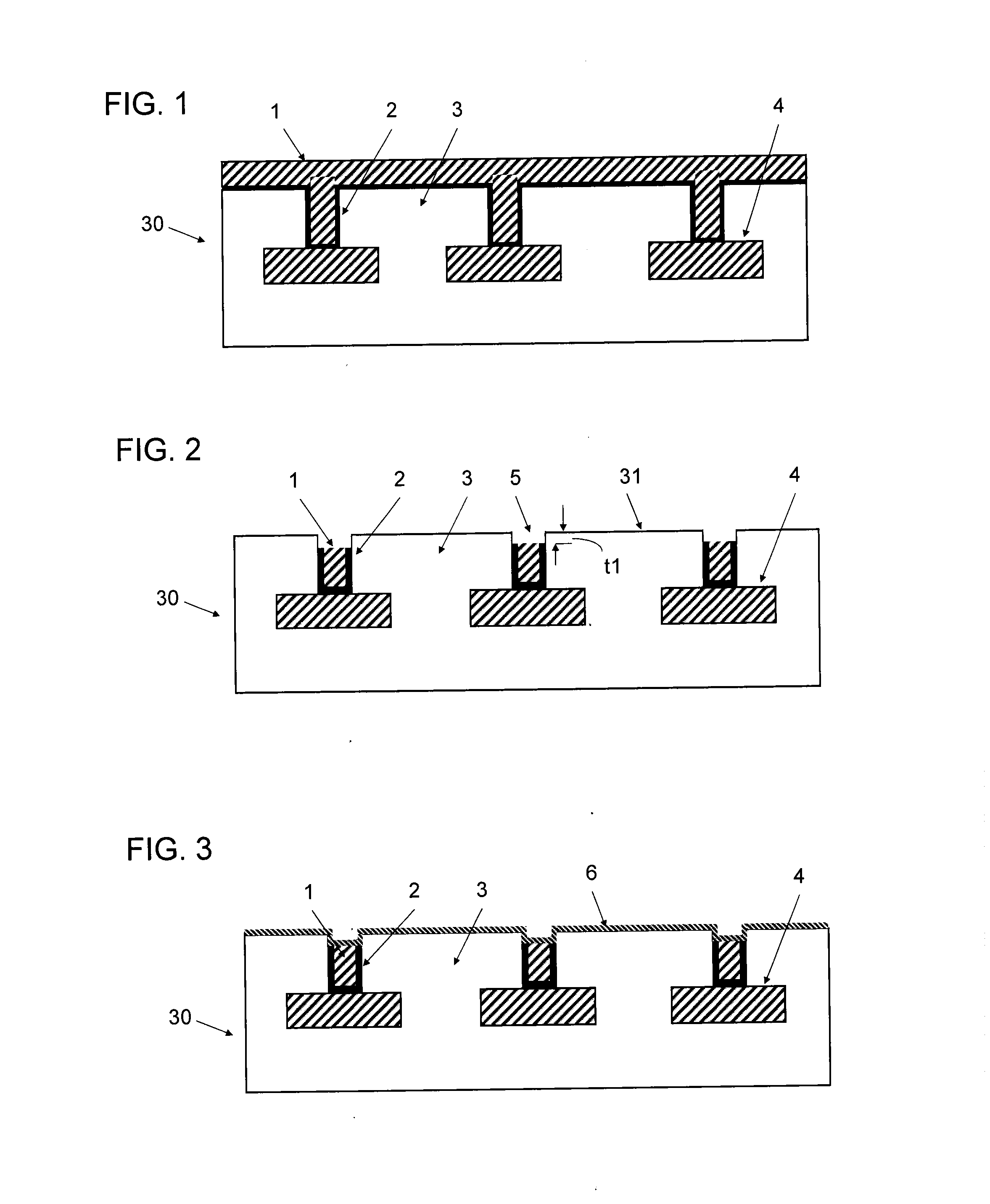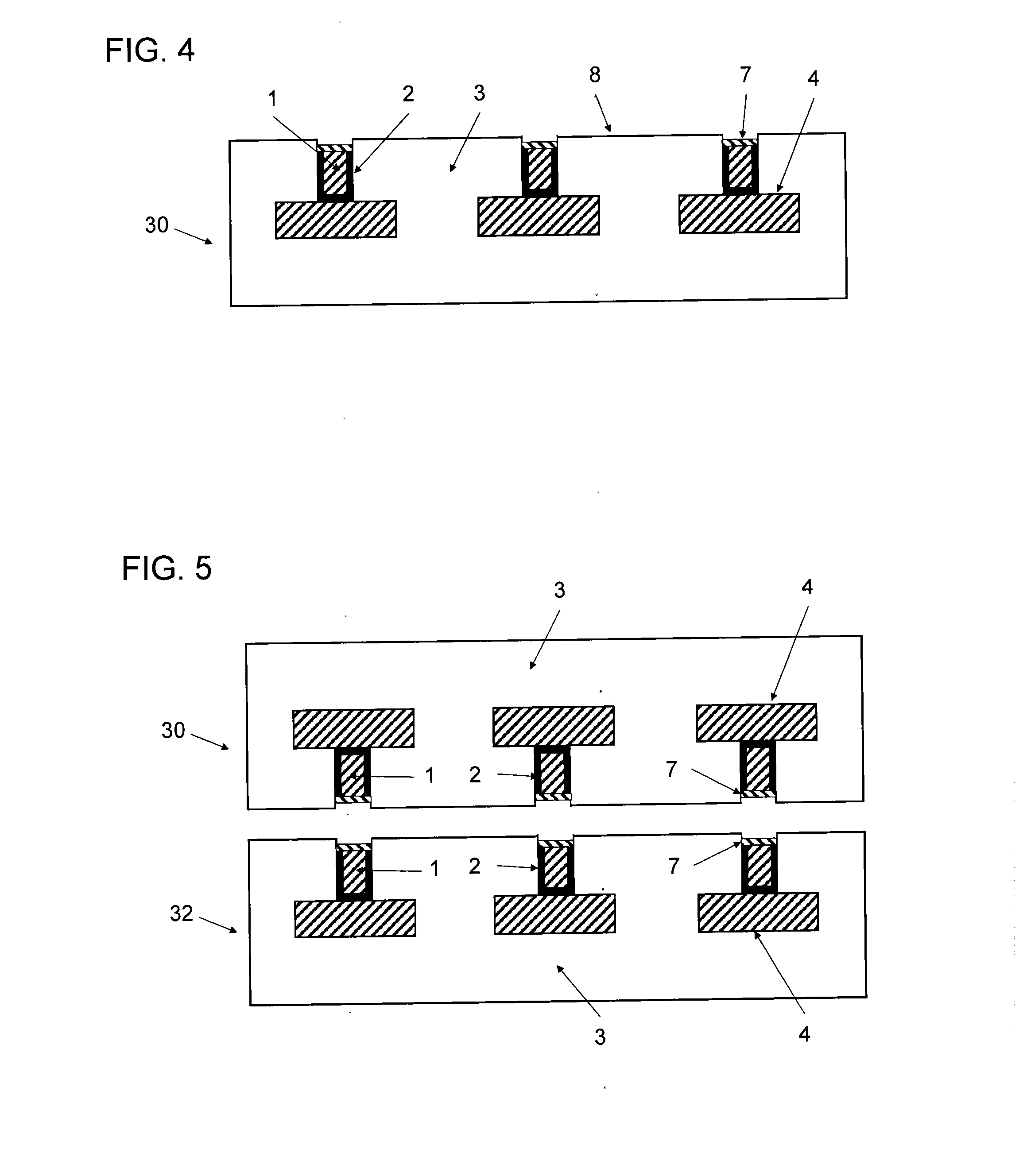Conductive barrier direct hybrid bonding
a technology of conductive barrier and hybrid bonding, which is applied in the direction of semiconductor/solid-state device details, electrical equipment, semiconductor devices, etc., can solve the problem of typical heterogeneous bonding between metal on one surface and dielectric on the other surfa
- Summary
- Abstract
- Description
- Claims
- Application Information
AI Technical Summary
Benefits of technology
Problems solved by technology
Method used
Image
Examples
Embodiment Construction
[0027]Referring now to the drawings, wherein like reference numerals designate like or corresponding parts throughout the several views, and more particularly to FIG. 1 showing a cross-section of a surface of a substrate 30 in a process for direct hybrid bonding according to the invention comprised of conductor 1, conductive barrier 2, dielectric 3, and metal structure 4. Metal structures 4 are formed in dielectric 3. Metal structures 4 are located within dielectric 3 and can be a contact, pad, line, or other metal interconnect structure. Openings are formed in dielectric 3 over metal structures 4 followed by formation of barrier 2 and conductor 1. The sizes and thicknesses of the conductor 1, conductive barrier 2 and metal structure 4 are not to scale but are drawn to illustrate the invention. While the openings and metal structures are shown to be the same size and shape, they can differ in size and shape depending upon design or need.
[0028]A wide variety of metals for conductor 1...
PUM
| Property | Measurement | Unit |
|---|---|---|
| roughness | aaaaa | aaaaa |
| temperatures | aaaaa | aaaaa |
| temperature | aaaaa | aaaaa |
Abstract
Description
Claims
Application Information
 Login to View More
Login to View More - R&D
- Intellectual Property
- Life Sciences
- Materials
- Tech Scout
- Unparalleled Data Quality
- Higher Quality Content
- 60% Fewer Hallucinations
Browse by: Latest US Patents, China's latest patents, Technical Efficacy Thesaurus, Application Domain, Technology Topic, Popular Technical Reports.
© 2025 PatSnap. All rights reserved.Legal|Privacy policy|Modern Slavery Act Transparency Statement|Sitemap|About US| Contact US: help@patsnap.com



